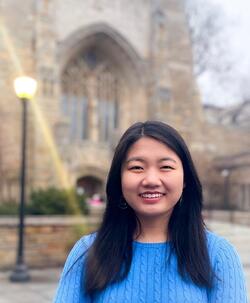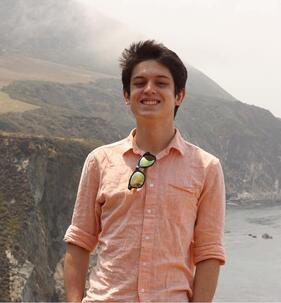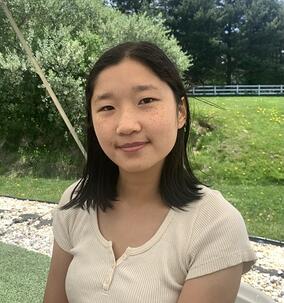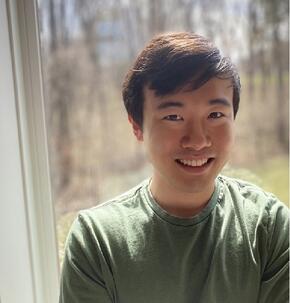Written by Miki and the prize recipients.
The mathematics department congratulates this year’s graduating seniors. We are very proud of all of you!
This year’s Mathematics prizes were announced on Monday, May 23, at an afternoon math department celebration.
For this article, we asked each recipient to write a few lines about their future plans, and to share advice that they would give to new Yale mathematics majors.
The DeForest prizes for proficiency in pure and applied mathematics are awarded to Sarah Zhao and Fernando Trejos Suárez.

Sarah will be pursuing a MPhil in Advanced Computer Science at Cambridge University next year with a focus on machine learning. She will then be starting graduate school at Stanford in Statistics. Over the summer, she looks forward to catching up on some reading and visiting friends on both coasts.

Fernando will be starting a PhD program in mathematics at Princeton next year, where he hopes to study number theory. He looks forward to spending the beginning of the summer at home in Costa Rica, and then travelling with friends in the USA and abroad as much as he can. Hopefully, he will find time to read and play the piano, two habits that he really hopes to bring to graduate school.
The George Beckwith prize for proficiency in astronomy or mathematics is awarded to Yulan Zhang.

Yulan will start working full-time at Jane Street in New York City next fall. This summer she will participate in an REU, and she plans to read lots of books and run.
The Anthony D. Stanley memorial prize, given out to a junior for excellence in pure and applied mathematics, is awarded to Hamilton Wan.

Hamilton is looking forward to a summer of math research, long walks, fumbling through pieces on the piano, and spending time with his family and dog. He is also excited - and a little surprised - to be starting his senior year soon.
The John Alan Lewis Summer Research Fellowship is awarded to a winning proposal by an undergraduate student majoring in mathematics who wishes to pursue their studies over the summer. This year’s fellowship is awarded to Wenrui Kong.
Wenrui is a junior interested in geometry. This summer, he is going to spend more time on cooking and piano besides math research. His favorite composer is J.S. Bach.
In addition to our own prizes, two math majors, Matt King and Sarah Zhao, were awarded the Russell Henry Chittenden Prize!
Congratulations to the prize winners, and to all graduating seniors.